“We are our choices.” Jean-Paul Sartre.
“Do not wait for the last judgment. It comes every day.” Albert Camus.
“Everything can be taken from a man or a woman but one thing: the last of human freedoms to choose one’s attitude in any given set of circumstances, to choose one’s own way.” Viktor Frankl.
“Courage is not the absence of despair; it is, rather, the capacity to move ahead in spite of despair.” Rollo May.
“(The individual) justifies his existence by a movement which, like freedom, springs from his heart but which leads outside of himself.” Simone de Beauvoir.
Existential psychology became increasingly popular from the 1940s onwards. Elements of this approach can be found in the work of Viktor Frankl, Rollo May and Irvin Yalom.
Before going into details about the existential approach, it can be useful to see where it fits into the development of psychology. At one stage it was called the Fourth Force in psychology.
One force was Behaviourism. This saw human beings as strongly moulded by their conditioning. People behaved in ways that were dependent on rewards and punishment.
Behaviours could be changed by giving people a certain stimulus – whether it be pleasure or pain – and this would trigger a certain response.
Another force was Psychoanalysis. This saw human beings as driven by their past experiences. People behaved in ways that stemmed from feelings about their childhood or other experiences.
Growth was dependent on people understanding both their unconscious and conscious drives. This was particularly so, for example, if they continually failed in particular areas of life.
People could gain understanding through the talking cure. This involved talking through their experiences with a doctor who had gone on to become a psychiatrist.
The ethos was that of a medical model. People who got into difficulties were sick. They could be helped to grow by understanding their behaviour and adopting other strategies in the future.
Humanistic psychology rebelled against both the conditioning and medical models. It saw human beings as basically good. People could develop by being true to themselves. Environment was crucial.
Abraham Maslow, for example, believed that people were more likely to grow if their basic needs were met. They could then take charge of their futures, be creative and grow towards fulfilment.
Existential psychology had an impact on humanistic psychology and became increasing popular at the same time. It saw human beings as neither good nor bad.
People shaped their lives by the choices they made and each choice had consequences. They could take responsibility for choosing their attitude and actions.
People who were true to their values – and who lived in good faith – were more likely to feel good. Those who failed to follow their values – and lived in bad faith – were more likely to feel troubled. People could grow by finding and following their purpose. This gave meaning to their lives.
Existential Psychology
– Some Background
Existential psychology grew out of the European approach to existential philosophy. This was concerned with the classic questions a person might ask about their life.
“Who am I? What is the meaning of my life? How can I act on this meaning? How can I do my best during my life?”
There are many aspects to existential psychology. Originally some of the European thinkers debated these classic questions in philosophical terms.
Sometimes the ways these questions were explored could produce a feeling of angst, rather than of optimism. People were invited, for example, to explore how to live authentically when faced by the issues we face in life. These included the challenges of pain, loneliness and death.
What did human beings do when faced by such issues? Some existentialists maintained that many people went into a state of denial.
Some filled their lives with being busy, for example, rather than finding and following their values. This failure to be authentic created a circle of guilt. How to get out of this circle?
While some intellectuals debated, others maintained that the best way forward was to act. People could do this, even though they knew their existence would be short.
Death could actually give meaning to our lives. It could force us to look at our true purpose on the planet. As Steve Jobs said many years later:
“… death is very likely the single best invention of life.”
Being aware of death gives us an opportunity. We can choose to live life fully and give our best to the world. Or we can choose not to give our best. We make this choice each day.
Existential Psychology
– Some Key Thinkers
Looking the psychological profession, some approaches focus on specific existential themes. These include, for example, encouraging people to focus on their values, meaning, purpose, authenticity, responsibility and contribution.
As mentioned earlier, much of the groundwork for this approach was laid by existential philosophers. These included thinkers such as Soren Kierkegaard and Martin Heidegger.
Several people then created the bridge from philosophy to psychology and on to psychotherapy. These included practitioners such as Ludwig Binswanger and Medard Boss. The approach reached a world-wide audience, however, with the work of Viktor Frankl and Rollo May.
Let’s look at these people.
Ludwig Binswanger
Ludwig was born in Switzerland in 1881. Considered one of the founders of existential psychology, his work is acknowledged in Switzerland, Germany and other central European countries. It is not so well known elsewhere, however, because his books were not translated into English.
He came from a family that included eminent psychiatrists. His grandfather, also named Ludwig, founded the Bellevue Sanatorium in 1857.
Based in Kreuzlingen, this became famous for its pioneering approach to psychiatry. His uncle, Otto, was professor of psychiatry at the University of Jena.
Ludwig himself studied under Carl Jung and was good friends with Sigmund Freud. Following in his grandfather’s footsteps, he then worked at the Bellevue Sanatorium. Becoming the chief medical director, he worked there from 1910 until 1956.
Whilst some of Ludwig’s writing is considered abstract, his work laid the foundations for existential psychology. Placing a strong emphasis on building a good relationship with clients, he focused on enabling them to take responsibility for the lives.
Ludwig was particularly known for developing Daseinanalysis. This stems from the German word ‘Dasein’, for which there is no direct English translation. Some people translate it as ‘existence’. Others go further, explaining it in terms of ‘being there’.
Some existentialist philosophers said we were ‘thrown into the world’. Certainly we had freedom, but this consisted of how we chose to respond to our situation and shape events.
Being fully in the world called for being persistent and engaging with life, especially when faced by challenges. Such actions were needed in order to be authentic and express our essence.
This meant caring for life, for others and for the world. The choices we made on this life journey could define our existence.
Ludwig continued to write until his death in 1966. The seeds of existential psychology were spread further, however, by one of his countrymen.
Medard Boss
Medard was born in 1903 in St. Gallen, Switzerland. He grew up in Zurich and, after gaining a degree in medicine, worked for the Swiss psychiatrist Eugen Bleuler. Expanding his repertoire, he went on to study in Berlin and London.
Medard immersed himself in the writings of the existential philosophers, such as Martin Heidegger, who later became a friend. He also studied the work of Ludwig Binswanger.
Some people see Medard as one of the founders of existential psychology. But he paid homage to many of the people who helped to pioneer the path.
Medard added several dimensions that encouraged patients to take responsibility for shaping their futures. He wrote later that the therapist’s aim was to enable the patient:
“ … to appropriate as his own the innate potentials which up until treatment had been hidden, disturbed, or distorted.”
How to help a person to take this step? Tony Crisp describes Medard’s views regarding the concepts of Dasein and light. You can find a fuller explanation at the following site.
http://dreamhawk.com/dream-encyclopedia/medard-boss/
“Boss has used the term Dasein to describe a fundamental core that can illumine us and therefore bring healing and wellbeing.”
The therapist could enable a patient to be open to this light and let the life stream through. Tony Crisp explains:
“Boss’s work was to help the client remove or deal with the lumps of experience, fear, attitudes and beliefs that are like objects blocking the natural light arising from Dasein – the core.”
You can also find a fine explanation of Medard’s work at Dr C. George Boeree’s site.
http://webspace.ship.edu/cgboer/boss.html
“Boss believed that Dasein was a means of opening the mind – of bringing light to a situation.
“Defensiveness, for example, is a matter of not illuminating some aspect of life, and psychopathology is analogous to choosing to live in the darkness.
“Therapy, on the other hand, involves reversing this constriction of our basic openness, and we could call it ‘enlightenment!’”
Medard encouraged a person to be fully open to experience. One approach he used was ‘Attunement’. This meant enabling a patient to tune into the moods they were experiencing.
He also encouraged people to learn from their dreams. Medard believed that dreams were directly related to a person’s daily life and actions, rather than to the subconscious.
Medard believed that enlightenment also meant connecting with others. He wrote:
“We are not individuals locked up inside our bodies. We live in a shared world, and we illuminate each other. Human existence is shared existence.”
Medard died in 1990. His work reached a wider audience than did that of Ludwig Binsanger.
But it was two other people who spread the principles of existential psychology, especially in the United States. These were Viktor Frankl and Rollo May. So let’s explore their work.
Viktor Frankl
Viktor was an Austrian psychiatrist who lived between 1905 and 1997. His philosophy helped many people to develop their inner strength. This work reached millions through his book Man’s Search For Meaning.
The book described his harrowing journey through the Nazi concentration camps. Surrounded by terror, he wondered how to make sense of this madness. Viktor concluded that:
“Man is not free from his conditions, but he is free to take a stand towards his conditions.”
Frankl found that many of the survivors had something to live for beyond the immediate horror. They had a book to write, a relationship to rebuild or a dream to pursue. He later wrote:
“Everything can be taken from a man or a woman but one thing: the last of human freedoms to choose one’s attitude in any given set of circumstances, to choose one’s own way.”
Chance played an enormous part in the death camps, of course, but each person faced choices each day.
Viktor describes how it was vital to look alert and ready to work. New arrivals found the ordeal began when the railway trucks drew into the camp sidings.
Recalling his own experience, he describes joining a long line which shuffled towards an SS Officer. The Officer looked at each person and casually pointed to the left or the right.
“It was my turn,” writes Viktor.
“Somebody whispered to me that to be sent to the right side would mean work, the way to the left being for the sick and those incapable of work.
“My haversack weighed me down a bit to the left, but I made an effort to walk upright.
“The SS man looked me over, appeared to hesitate, then put both his hands on my shoulders, I tried very hard to look smart, and he turned my shoulders very slowly until I faced right, and I moved over to that side.”
Viktor survived the Nazi camps, emigrated to America and worked as a psychiatrist. Working with suicidal people, he recognised the similarity between them and prisoners in the death camps.
He recalled two prisoners who talked of committing suicide. Both men used the typical argument: that they had nothing more to expect from life.
The challenge was to show the men that life was still expecting something from them. Viktor continues:
“We found, in fact, that for the one it was his child whom he adored and who was awaiting for him in a foreign country. For the other it was a thing, not a person.
“This was a scientist and had written a series of books which still needed to be finished.
“His work could not be done by anyone else, any more than another person could ever take the place of the father in his child’s affections.
“A man who becomes conscious of the responsibility he bears toward a human being who affectionately waits for him, or to an unfinished work, will never be able to throw away his life.
“He knows the ‘why’ for his existence, and will be able to bear almost any ‘how’.”
Camp life showed that people do have a choice of action, said Viktor, and prisoners who lost faith in the future were doomed. Viktor became fascinated with each individual’s search to live a meaningful life. He wrote:
“It did not really matter what we expected from life, but rather what life expected from us.”
The more we strive for happiness, the more it eludes us. We need to create a meaning for our lives – a vocation to follow, a person to help, a deed to do, a legacy to leave. Happiness is often a by-product of doing our best during our time on Earth.
Viktor also quoted Albert Schweitzer, who said:
“The only ones among you who will be really happy are those who have sought and found how to serve.”
Viktor’s books pass-on the wisdom he gained from a life of service and suffering. Here are some of the key principles that run through his philosophy.
People can choose their attitude
Human beings want to feel in control. Time after time we hear people say: “But I had no choice.”
Based on his experience in the death camps, Frankl maintains that there is always one final freedom. We can choose our attitude towards events. He wrote:
“We who lived in concentration camps can remember the men who walked through the huts comforting others, giving away their last piece of bread.
“They may have been few in number, but they offer sufficient proof that everything can be taken from a man but one thing: the last of the human freedoms – to choose one’s attitude in any given set of circumstances, to choose one’s own way.”
People want to find and follow
their personal sense of meaning
Human beings long for a sense of purpose, said Frankl. He believed there were three ways to create meaning in life:
By doing a deed or creating a work.
By appreciating the experience of someone or something.
By choosing our attitude towards suffering.
“Everyone has his own specific vocation or mission in life,” he wrote. “Everyone must carry out a concrete assignment that demands fulfilment.
“Therein he cannot be replaced, nor can his life be repeated, thus, everyone’s task is unique as his specific opportunity to implement it.”
People find happiness as a by-product
of following their meaning
He believed that, providing we follow our meaning in life, happiness would happen as a by-product.
The key was to follow our vocation each day. He wrote:
“I want you to listen to what your conscience commands you to do and go on to carry it out to the best of your knowledge.
Then you will live to see that in the long run – in the long run, I say – success will follow you precisely because you had forgotten to think of it.'”
Speaking towards the end of his life, Viktor said that, for humanity to survive, we needed to coalesce around a common purpose. We can choose our attitude and, if we wish, pass-on a better world to future generations.
Faced by interviewers who asked what people should do when faced by economic crises or global challenges, he returned to his famous saying.
“Man is not free from his conditions, but he is free to take a stand towards his conditions.”
You can discover more about Viktor’s work and legacy at the following website.
http://www.viktorfrankl.org/index.html
Rollo May
Rollo May was born in 1909 in Ohio. He brought together many strands of the existential approach and presented these to a wider audience in the United States.
Rollo did this when co-editing with Ernest Angel and Henri F. Ellenberger the book called Existence.
He had actually been exploring existential issues in his earlier books. These included Man’s Search For Himself, which was published in 1953. But we will explore these themes later.
Rollo began his working career by teaching at an American college in Greece. Always interested in the deeper questions in life, he travelled to Vienna to attend sessions run by Alfred Adler.
Returning to the United States, he took a divinity degree and worked as a Congregationalist minister. He was fascinated by psychology, however, and resigned his post to study the subject at Columbia University.
An excellent overview of what happened next can be found at the site called psychologistanywhereanytime.com. Here are some extracts from the site that relate to Rollo.
“While working on his doctorate, he contracted tuberculosis, a life-threatening disease, and, out of this traumatic experience, May developed a new fondness for existential philosophy, which matched his belief that his struggle against death, even more than medical care, determined his fate in surviving the disease.
“Of course, May’s background in theology, particularly the influence of the existential theologian Paul Tillich, was a major impetus for his desire to pursue a study of psychology informed by existentialist philosophy.”
Rollo went on to take teaching positions before embarking on his own clinical practice. Focusing on the existential challenges facing human beings in the middle of the 20th Century, he wrote Man’s Search For Himself, which was published in 1953.
Here are some quotes from the book that give a flavour of the areas he explored.
“It may sound surprising when I say, on the basis of my own clinical practice as well as that of my psychological and psychiatric colleagues, that the chief problem of people in the middle decade of the twentieth century is emptiness.
“The human being cannot live in a condition of emptiness for very long: if he is not growing toward something, he does not merely stagnate; the pent-up potentialities turn into morbidity and despair, and eventually into destructive activities.
“The upshot is that the values and goals which provided a unifying center for previous centuries in the modern period no longer are cogent.
“We have not yet found the new center which will enable us to choose our goals constructively, and thus to overcome the painful bewilderment and anxiety of not knowing which way to move.
“Finding the center of strength within ourselves is in the long run the best contribution we can make to our fellow men.
“Joy, rather than happiness, is the goal of life, for joy is the emotion which accompanies our fulfilling our natures as human beings.
“Freedom is man’s capacity to take a hand in his own development. It is our capacity to mold ourselves.
“The first thing necessary for a constructive dealing with time is to learn to live in the reality of the present moment. For psychologically speaking, this present moment is all we have.
“The practical implication is that one’s goal is to live each moment with freedom, honesty and responsibility.
Rollo went on to write several books that explored similar themes. As mentioned earlier, he co-edited Existence, which helped to introduce existential psychology to the United States.
He also produced books that were read by many people who had not previously studied psychology. These included, for example, Love and Will and The Courage to Create.
The latter focused on the need to be creative, especially when faced by existential challenges. The following quotes give a flavour of the book.
“Whereas moral courage is the righting of wrongs, creative courage, in contrast, is the discovering of new forms, new symbols, new patterns on which a new society can be built.
“Artists are generally soft-spoken persons who are concerned with their inner visions and images. But that is precisely what makes them feared by any coercive society.
“The acorn becomes an oak by means of automatic growth; no commitment is necessary. The kitten similarly becomes a cat on the basis of instinct. Nature and being are identical in creatures like them.
“But a man or woman becomes fully human only by his or her choices and his or her commitment to them. People attain worth and dignity by the multitude of decisions they make from day by day. These decisions require courage.
“The creative process must be explored not as the product of sickness, but as representing the highest degree of emotional health, as the expression of the normal people in the act of actualizing themselves.
“Artists encounter the landscape they propose to paint — they look at it, observe it from this angle and that. They are, as we say, absorbed in it.
“Or, in the case of abstract painters, the encounter may be with an idea, an inner vision, that in turn may be led off by the brilliant colors on the palette or the inviting rough whiteness of the canvas.
“A dynamic struggle goes on within a person between what he or she consciously thinks on the one hand and, on the other, some insight, some perspective that is struggling to be born. The insight is then born with anxiety, guilt, and the joy and gratification that is inseparable from the actualizing of a new idea or vision.
“Human freedom involves our capacity to pause, to choose the one response toward which we wish to throw our weight.
“Creativity arises out of the tension between spontaneity and limitations, the latter (like the river banks) forcing the spontaneity into the various forms which are essential to the work of art or poem.”
Rollo expanded on these themes in a superb interview with Jeffrey Mishlove. Here are some quotes from Rollo during that discussion. You can find the original transcript at the following link.
http://www.intuition.org/txt/may.htm
“We are conscious of our own selves, our own tasks, and also we know we’re going to die. Man is the only creature – men, women, and children sometimes even, are the only creatures who can be aware of their death, and out of that comes normal anxiety.
“When I let myself feel that, then I apply myself to new ideas, I write books, I communicate with my fellows. In other words, the creative interchange of human personality rests upon the fact that we know we’re going to die. Of that the animals and the grass and so on know nothing.
“But our knowledge of our death is what gives us a normal anxiety that says to us, ‘Make the most of these years you are alive.’ And that’s what I’ve tried to do.
“Joy is the zest that you get out of using your talents, your understanding, the totality of your being, for great aims.
“Musicians, men who wrote music – Mozart and Beethoven and the rest of them – they always showed considerable anxiety, because they were in the process of loving beauty, of feeling joy when they heard a beautiful combination of notes.
“That’s the kind of feeling that goes with creativity. That’s why I say the courage to create.
“Creation does not come out of simply what you’re born with. That must be united with your courage, both of which cause anxiety but also great joy.
“We try to avoid anxiety by getting rich, by making a hundred thousand dollars when we’re twenty-one years of age, by becoming millionaires.
“Now none of those things lead to the joy, the creativity that I’m talking about. One can own the world and still be without the inner sense of pleasure, of joy, of courage, of creation.
“Now, I believe in life, and I believe in the joy of human existence, but these things cannot be experienced except as we also face the despair, also face the anxiety that every human being has to face if he lives with any creativity at all.
Rollo died 1994. One comment by Norman Cousins was included in several of his obituaries. This summed up the way many people felt about Rollo’s contribution. Norman wrote:
“I have never come away from a book by Rollo May without a feeling that the game of life is worth the candle, or without an added increment of faith in the ability of human beings to be equal to their problems.”
Here is a documentary made for Swedish Television in which Rollo focuses on some of the themes in life.
Many other people have contributed to the principles embodied in existential psychology. In the early days this included thinkers such as Otto Rank.
More recently it can be found in the work of Irvin Yalom. He has produced practical textbooks and fictional books on the theme. You can discover more about his approach at the following link.
Over the past half century there has been an increasing emphasis on people taking responsibility for shaping their futures. Such an approach is embodied in the work of existential psychology.
Finally, here is a video in which Betty Cannon, from the Boulder Psychotherapy Institute, talks about Applied Existential Psychotherapy.


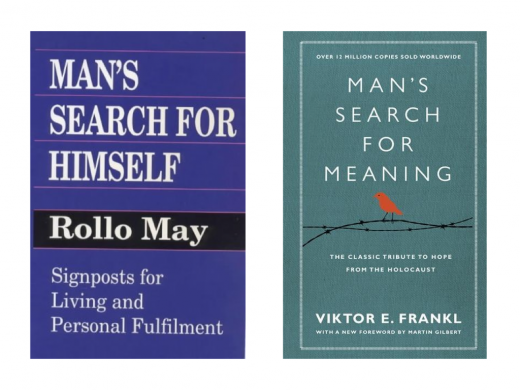
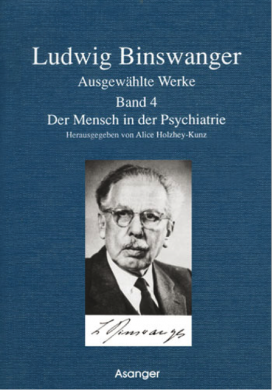
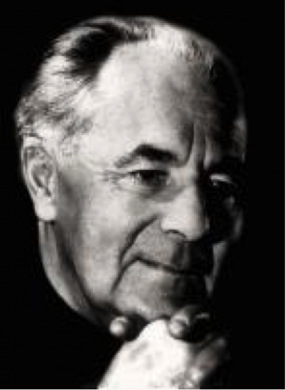
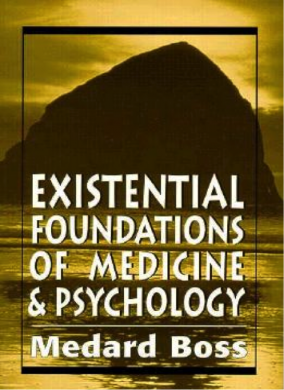
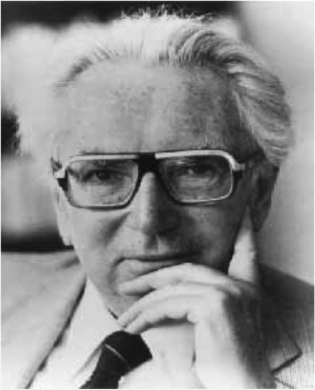
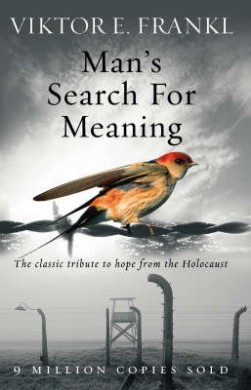
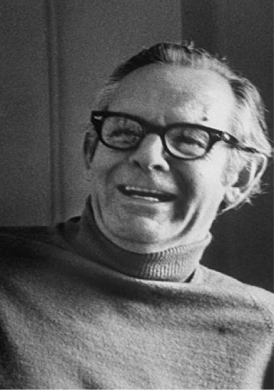
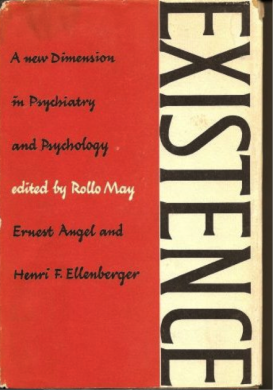
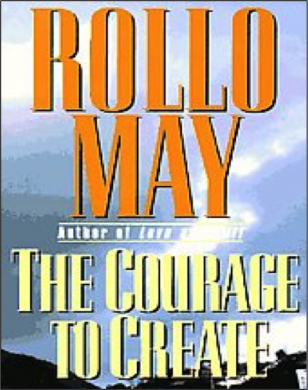
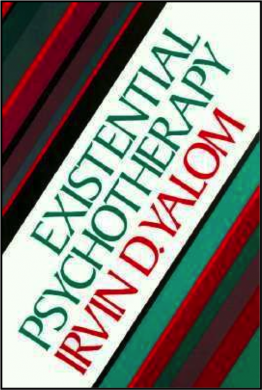




Leave a Reply